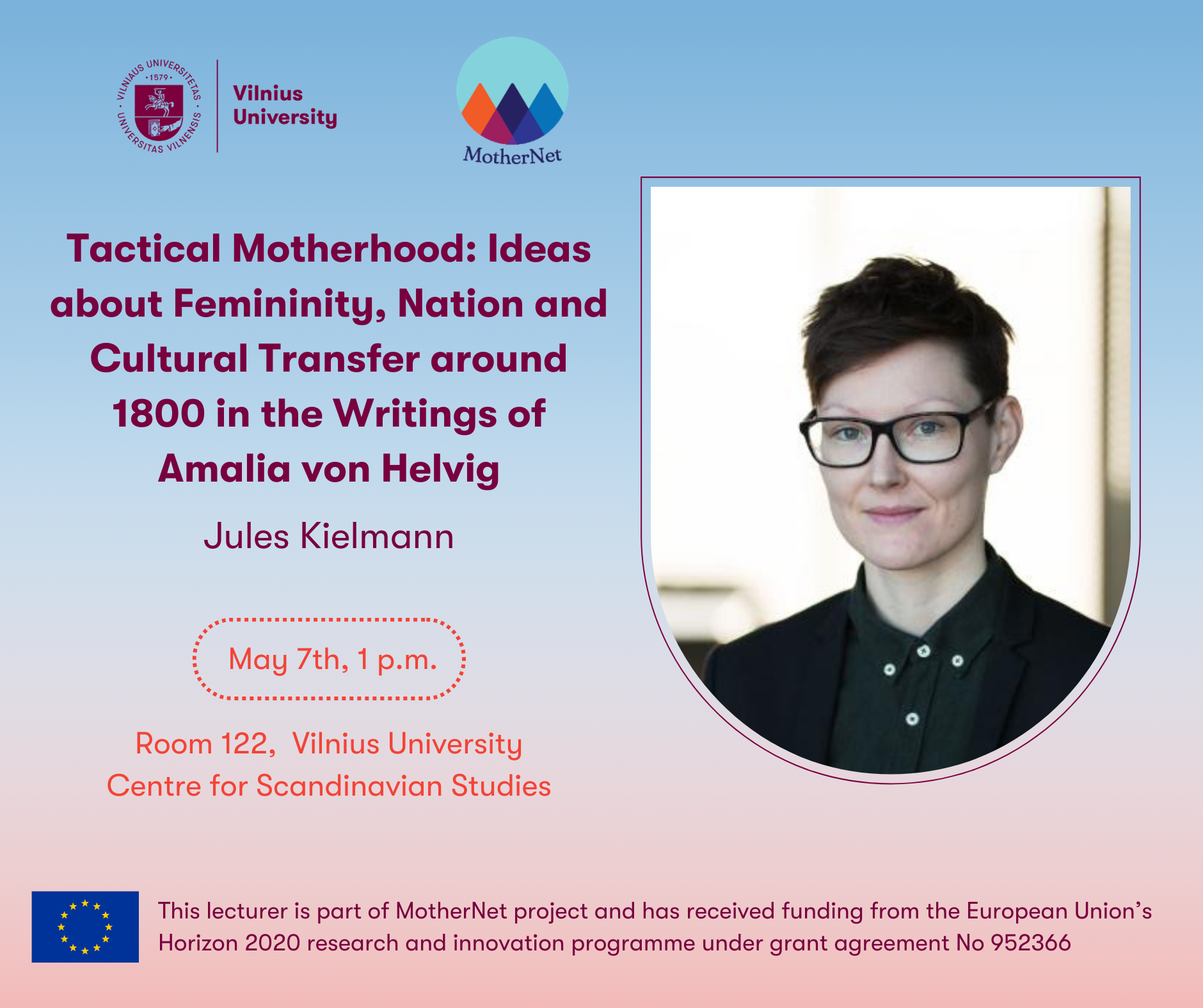
MotherNet member Jules Kielmann from Uppsala University will visit Vilnius University and on May 7 at 1 PM give a lecture Tactical Motherhood: Ideas about Femininity, Nation and Cultural Transfer around 1800 in the Writings of Amalia von Helvig (Room 122, Vilnius University Centre for Scandinavian Studies).
About the lecture:
With her biography shaped by mobility, and political and cultural changes, the German writer Amalia von Helvig, née Imhoff (1776-1831) is particularly suitable for examining the importance of gender and nationality as well as network contacts for the work and influence of women writers around 1800. Questions of nationality were notably actualised in relation to Helvig’s two visits to Sweden (1806–1810 and 1814–1816). Acting as a “cultural transmitter” (Petra Broomans) between Germany and Sweden, Helvig contributed actively to the reciprocal processes of nation building. In her many roles as a writer in different genres, literary agent and patron, reviewer and translator of Swedish authors, Helvig not only conveyed her image of the “North” to her German readership, but also was instrumental in shaping the way her Swedish acquaintances perceived Germany.
The interactions of gender, nation and authorship in Helvig’s work were complex in their consequences: Helvig being a woman, a mother and an artist; a German living in Sweden; and a born aristocrat married to a bourgeois military officer, situated in fluctuating social, cultural and geographical milieus with their own aesthetic norms and ideals, has considerably shaped her work and its reception. However, Helvig and her works have not only been shaped by those intersections. Using the example of the topic of motherhood in her work, my talk will illustrate how Helvig tactically used the tension between the expectations in her different roles to shed light on contemporary norms, to question or confirm them, and even to subtly amend them.
This visit is a part of MotherNet project and has received funding from the European Union’s Horizon 2020 research and innovation programme under grant agreement No 952366.






